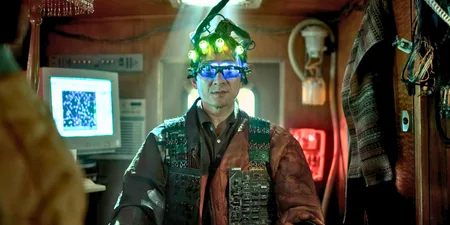The show returned with record viewers last night and some backlash this morning
Line of Duty is a British phenomenon, by all accounts. Whether you watch it or not, you certainly plenty of people who do and won’t stop telling you to watch it. The UK crime drama began its sixth series this past Sunday and despite reeling in a record audience of 9.6 million viewers, one line has left some with a bitter taste in their mouth.
Now, like any show in the history of television, understanding that not every character is going to be a saint should be a given. It’s why we love crime dramas, specifically: there’s someone to root for, there’s a villain to hate and more importantly, people that just aren’t perfect.
Furthermore, part of the reason many of us love film and television is that it has the capacity to capture something authentic and mirror real life to some degree. People aren’t perfect in real life either, but it’s part of the reason we find shows like Line of Duty so real and compelling.
All that being said, unfortunately, several people at home took offence to one line in last night’s episode in particular. After a character with Down’s Syndrome was arrested in the show, Ted Hastings (played by Adrian Dunbar) went on to refer to him as “the local oddball”. Many viewers were quick to flag this up as problematic.
It's great that Line of Duty is back. However, calling a character with Down’s Syndrome ‘the local oddball’ on World Down Syndrome Day doesn't sit well with me. Great the actor was given the opportunity but language is key to acceptance and understanding #LineofDuty
— Mick Finnegan (@Mick_Finnegan) March 21, 2021
As Mick Finnegan points out, part of the reason this particular line felt so inappropriate is that it aired on the eve of World Down Syndrome Day. As such, many people found that ascribing this trait to someone with Down’s Syndrome sends out the wrong message.
Whilst it is understandable that many people would find this language troubling in the immediate sense, the context doesn’t seem to indicate any offence being intended. Series writer, Jed Mercurio had a somewhat heated, somewhat diplomatic exchange with Jim Gamble, CEO of Ineqe Safeguarding Group, over the implications. Here’s the thread:
“Oddball” has no connotation for learning difficulties. It describes a loner, an eccentric. It’s an equally fitting description for someone like Christopher Jefferies. The drama is using the term to refer to the Dando case, not to learning difficulties.
— Jed Mercurio (@jed_mercurio) March 21, 2021
Mercurio argues that “oddball” did not refer to Down’s Syndrome and that the aim of the scene in the context of the episode and the show is to create a scenario that reflects how real police officers would speak. In short, not everyone uses the sensitive language all of the time.
He argued that while he felt Gamble implied police wouldn’t or shouldn’t use such language, “some would – and way, way worse, tbh)”, before questioning why a TV drama “can’t use a term that”, especially when it “doesn’t have the intended connotation you’ve subjectively attributed.”
He went on to qualify that “the officer in question doesn’t work with vulnerable people and hadn’t met the suspect. The ones dealing with the suspect used different, more appropriate language.” Once again, it factors into the narrative context.
Though it is laudable for anyone to try to pick people up on inappropriate language and educate others on accepted vernacular etc., in this instance, things don’t seem so cut and dry. It is a fictional television show depicting real-world people and issues, sure, but primarily to suspend disbelief, immerse those watching and reflect a certain kind of reality.
When you hear any character, fiction or non-fiction, using certain language, it is usually because the writers are either looking to achieve an effect: to either portray a character or represent a real person as having certain ideals, opinion, sympathies or lack thereof.






































